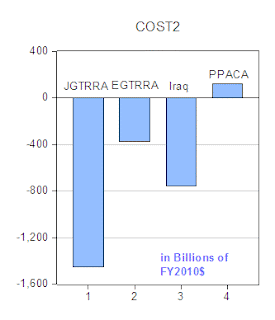You learn lots of important things in kindergarten. Don't lie. Don't cut in line. Always say "please" and "thank you." Share your toys. Don't tattle. These are all good lessons, but the last one doesn't really make sense. Tattletales inform proper authorities of people who broke the rules. If the rules are just, exposing violators of those rules should also be just. If it's not good to point out that little Suzy cut in line, how can one say it's bad to cut in line? And yet, if you're hosting a party and a guest came to you to rat out another guest because she jumped in front of everyone at the buffet table, you'll probably have a lower opinion of the informant, not the accused.
It gets even more confusing because it's not a hard fast rule. "Tattling" on a murderer or a thief is generally considered an act of bravery. Same thing goes with exposing corrupt politicians or companies doing unethical accounting or illegal polluting. We call them whistle blowers and put them on the
cover of Time Magazine. Context matters a lot: during the 2009 snow storm I, like so many others, were stranded at the Dulles Airport. A woman cut in line for rebooking (a line I was waiting in for two hours). It took us a while to figure out she was cutting and not asking a humdrum question and while no one protested, we wish we had. (Why we didn't is another story entirely.)
My best guess to explain this asymmetry is signaling theory. Signaling is economics speak for "actions speak louder than words." It's about using demonstrative actions to show people you have some quality. Saying you're a trustworthy person doesn't mean much. But if you fess up to something you did wrong, you can signal you're a trustworthy person and people are more likely to believe you. Tattletales interfere with that signaling system.
Suppose I cut in line at a buffet to get the last Swedish meatball. If I sneak away to devour my ill-gotten gains in peace, those who witnessed it will look down on me for my selfishness and rudeness. But suppose I admit to everyone that I cut in line and apologize. I've put myself out there, subjecting myself to the will of the mob. By admitting dishonesty,
everyone would look down on me. Someone might lay claim to my meatball. But it's also possible that everyone would laugh it off and they'll go away thinking "that David fellow is an honest guy; he didn't have to admit to such a minor offense but he did and that says a lot."
Now I'm not saying that a good way to gain people's trust is to swipe something and then fess up. The whole point is you're putting yourself at risk to be worse off than if you said nothing and it certainly doesn't work if you follow up every heart-felt apology with another act of rudeness. But it shows that there's value in not exposing a violator because doing so denies them the opportunity to signal honesty. If a third party tells everyone I cut in line, then me stepping up to admit it doesn't mean anything. Thus, we discourage tattletales because they mess up our signaling system.
This signaling system doesn't always work. When the expected costs of signaling are unconditionally greater than the expected benefits, we don't expect anyone to signal so we tolerate, no, celebrate, tattlers. From murderers to emergency situation line jumpers, whistle blowers end up just getting rid of the creeps.

